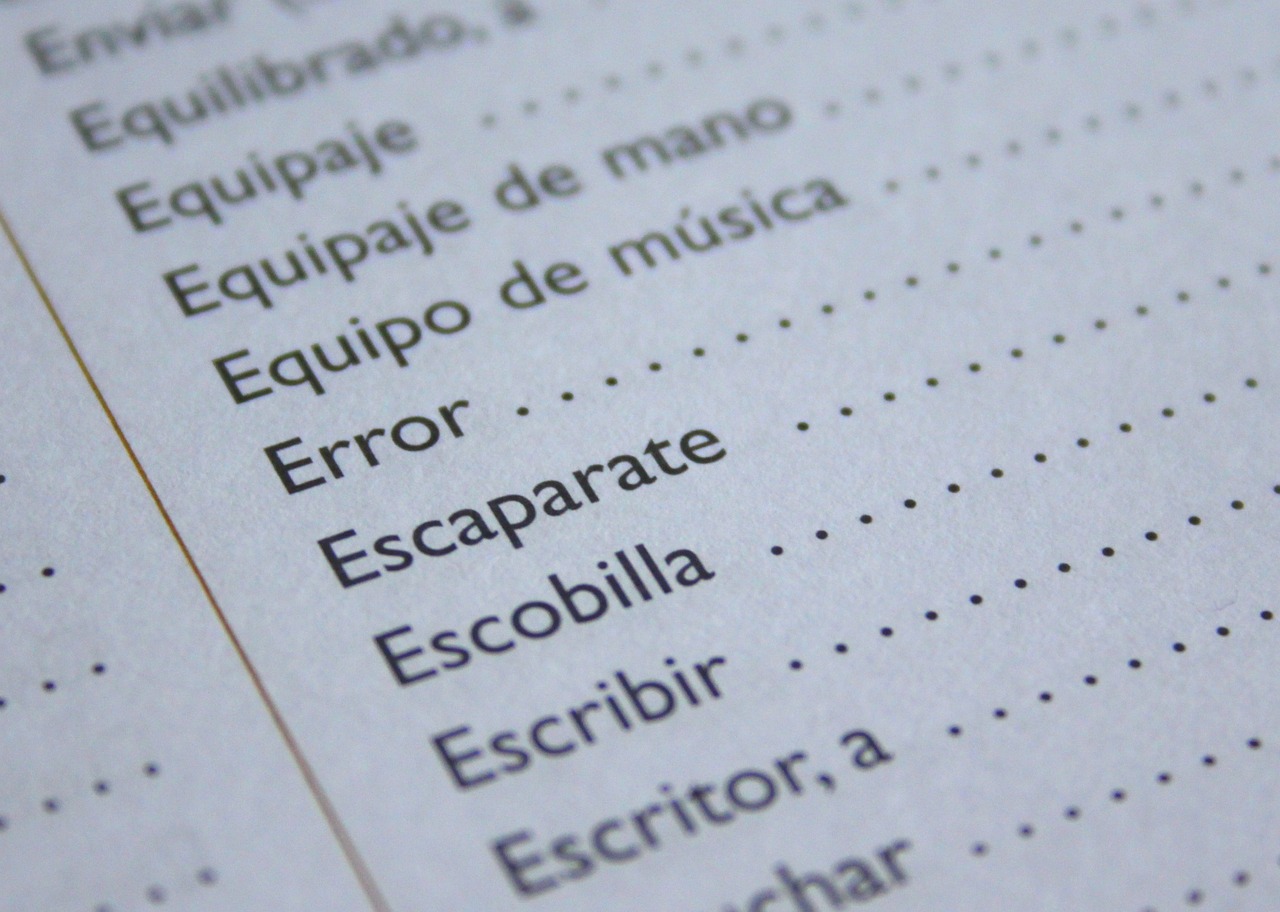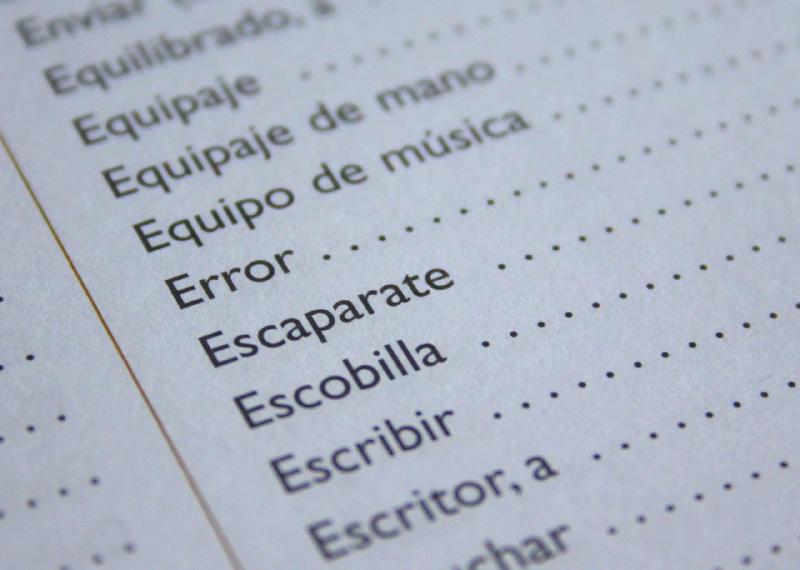Table of Contents
Table of Contents
Know any Spanish Slang from Spain?
If your Spanish friend tells you that they are flipando, what’s the first thing that comes to your mind? It sounds like you should know what it means, but for some reason, it doesn’t quite fit into context. Well, it could be that those English to Spanish false friends strike again!
Surprisingly enough, in the few years that I’ve been living in Spain, I’ve heard a large amount of colloquial Spanish words and phrases that sound like English words! In today’s blog post, we are going to look at 5 Spanish Slang words that you’ll hear in everyday conversation that sound like English words, but don’t mean exactly what you think. These colloquial words can be considered a Spanish to English false cognate or false friend.
What is a False Cognate/False Friend?
A false cognate, also known as “false friend”, is a word in one language that sounds similar to a word in another language. Due to this similarity, one may guess that they share a definition when in reality the words do not mean exactly the same thing.
Today I wanted to take you all through 5 colloquial Spanish words that you will hear while living in Spain that also happen to be false cognates. These colloquial Spanish slang words have a very similar-sounding English counterpart but differ in meaning. Sometimes they have very subtle differences in meaning, but other times they may mean something completely different!

Below is a quick summary of the five English-Spanish false cognates. Be sure to watch the video to hear some examples of situations where these colloquial Spanish words are used.
The secret meaning of Igual in Spanish
The word igual sounds very much like the English word equal and in fact, does share that same definition when doing comparisons. For example, “One plus one is equal to two” in Spanish would be, “Uno más uno es igual a dos.” However, igual also has a very commonly used colloquial meaning in Spain and that definition is maybe and is used very commonly in everyday conversation.
Igual in colloquial Spanish means maybe, perhaps.
For example, let’s say you’ve arranged to meet with a date for dinner at 8 pm and you check your watch and see that it’s 8:10 pm. You might say to yourself, exasperatedly, “Igual no viene”, or in English, “Maybe she won’t come.” As you can see here in this example, igual has taken on the definition of maybe, kind of like the words quizás and tal vez.
What is a Friki in Spain?
This colloquial word originated from the English word freak, which was originally used in the United States around the 1840s to the 1970s to refer to circus performers.
In Spain, this word became trendy and has caught on in everyday speech with two separate definitions:
Friki definition number 1 - Geek
The first definition of friki is someone obsessed with what is traditionally known as “geek culture”. That can range from someone having an interest in fantasy or sci-fi books and movies to someone incredibly into video games.
Friki definition number 2 - A person incredibly passionate and immersed in one particular hobby.
The second definition of friki is someone who is a fanatic for a particular hobby. Some may even consider this person overly involved in their hobby of choice. For example, you can be considered a friki of TV sitcoms if all you can do is talk about watching re-runs of Friends on Saturday nights.
If you’re reading this blog, you’re probably a friki for language learning like myself. Glad to have you here on the dark side as well :)
Something Brutal in Spain is something good?
In literary contexts, the word brutal means the same thing in Spanish as it does in English: harsh or savage. However, in colloquial Spain Spanish, brutal is used to refer to something that blows your mind in a good way. This descriptor really can be used to apply to anything: people, events, food, activities, etc.
¡La experencia fue brutal, nadé con tiburones!
Translation: The experience was awesome! I swam with sharks!
It can usually be used in similar contexts as you would use the English word awesome. Now that I think about it, the English word brutal can also be used to refer to things that we find awesome as well but I think it’s usage has slipped over time. I would definitely consider this particular usage of brutal in English less frequent in modern-day American culture than it is used in Spain.
The Spanish Pasta is not what you think.
I hope I didn’t trigger any cravings you might have had! Unfortunately, we aren’t going to be talking about our favorite foods today. While the Spanish word pasta is used to refer to the same dish that we all know and love, in colloquial contexts, the word pasta is used to refer to money.
In colloquial contexts, the word pasta is used to refer to money.
Kind of how like in English slang, the word dough also can refer to money, _in Spanish slang, the word _pasta _can be used similarly.
Another slang word in Spain that falls under the same category of “money”, but is not necessarily an English to Spanish false friend, is the word pavo. While pavo typically refers to a turkey, in colloquial everyday conversation it can also refer to bills or paper money in Spain. A good comparison to American English is that we might say that a sandwich costs 7 bucks, while in Spanish, you might say that it costs 7 pavos.
¡Compré el bocadillo por 7 pavos! ¡Buf, qué caro es todo!
Translation: I bought the sandwich for 7 bucks! Everything is so expensive!
Flipar, a classic colloquial word from Spain

Note: Flipar does NOT mean to flip nor does it mean flipper.
Probably the most common slang word from Spain that you will hear on this list. The word flipar has nothing to do with the English verb to flip, however, it does seem to have some sort of relationship with the phrase “to flip out”. This colloquial Spanish word has many definitions, with one of it’s common meanings being to freak out. Here is one example:
¡Estoy flipando con la noticia de tu nuevo trabajo! ¡Enhorabuena!
Translation: I’m freaking out about you getting a new job! Congratulations!
Keep in mind, that this word can be used in both positive and negative contexts.
Another definition of the word flipar, is to be crazy/mad. For example, take the phrase: “You’re crazy if you think I’ll lend you 1000 Euros!” In Spanish, that would translate to: “¡Tú flipas si crees que te voy a prestar mil euros!” As you can see, this is a slightly different use case than to freak out but carries the same undertones of being crazy.
If we look at the RAE (Real Academia Español), there are in total 5 definitions of the word “flipar”.
Conclusion
Well, that’s it for today! Next time you make a trip to Spain, don’t let any of these five Spanish slang words mislead you. You’ll be able to hold your own and who knows? Igual you will even surprise your Spanish friends with your new knowledge!
Also, if you missed the last article on How to use “Se” in Spanish (Common & Uncommon Usages), you should totally check it out. There, I go over some examples of both common and uncommon usages of the word “Se” in Spanish – which let me tell you there are a lot of them.
¡Nos vemos en la próxima publicación!
